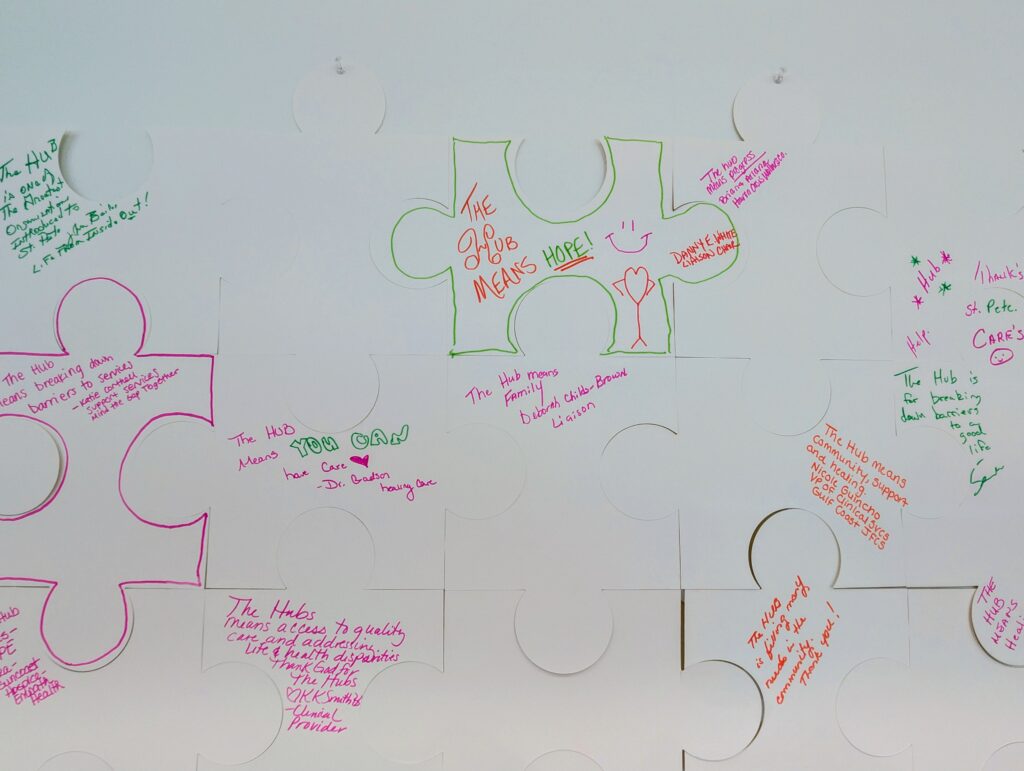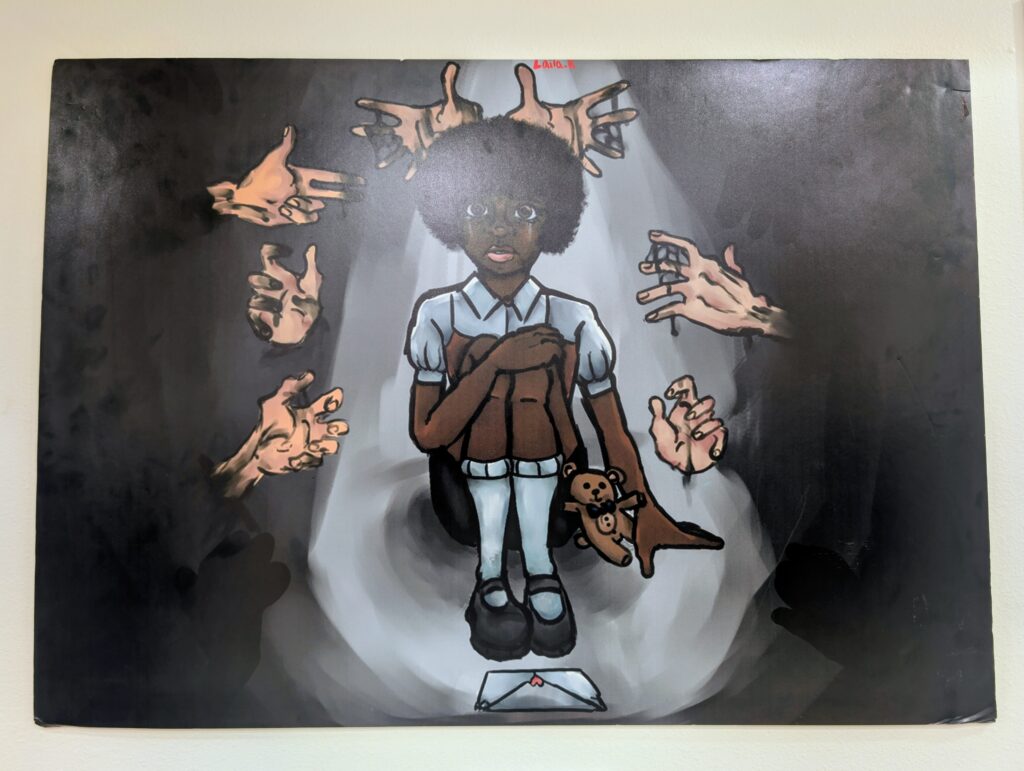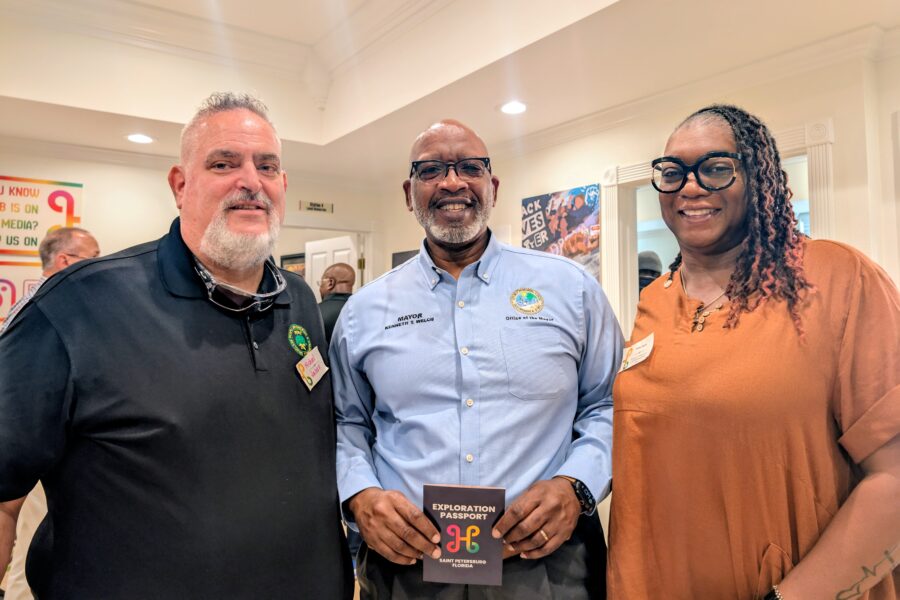An innovative, holistic approach to improving and destigmatizing mental health care in St. Petersburg has overcome some growing pains and is now expanding.
The Community Support Hub initiative’s nonprofit partners welcomed stakeholders to tour its new facility Saturday (Oct. 25) in the United Central District. Gulf Coast Jewish Family and Community Services (JFCS) now oversees a trauma-informed program that serves St. Petersburg’s most vulnerable residents.
Mayor Ken Welch said the city recognizes the role that behavioral health has in creating “inclusive progress for our entire community.” He believes a second Community Support Hub, facilitated by “great partners,” highlights a collective commitment to those efforts.
“Mental health support is vitally important – we need to destigmatize it,” Welch told the Catalyst. “The lack of mental health resources and behavioral health resources is one of the main issues that we have, whether it’s homelessness or crime or many other issues.
“You’ve got to have that base of primary support for folks that need assistance.”
The nearly 6,000-square-foot building at 3773 Central Ave. complements a South St. Petersburg outpost that struggles to keep pace with demand. Michael Jalazo, CEO of People Empowering and Restoring Communities (PERC), said the facility at 1601 16th St. S. is “packed every day.”
PERC is another founding partner, and the organization’s office is adjacent to the South St. Pete location. Jalazo noted it hosts outpatient substance abuse groups and workforce development programs, in addition to mental, behavioral and physical health programming.
“We’re hoping more space will allow more people to be served,” he added. “And even though it’s not physically that far away from each other, these neighborhoods are two … where services are needed. The whole hub model, the idea of multiple locations, is that we need to be in the neighborhoods where people need us.”
The city’s first Community Support Hub opened in March 2024 along the 22nd Street South (the Deuces) corridor. Welch selected The Well to oversee the grassroots initiative, and the local nonprofit’s executive director pledged to walk those in need “through the gate.”
Three months later, the gate locked permanently. Gulf Coast JFCS, which has received national acclaim for its Community Assistance and Life Liaison (CALL) program with the St. Petersburg Police Department, took the reins.
The Community Support Hub subsequently moved about a half mile from the Deuces site. However, Jalazo and multiple other partners said the around-the-clock resources are more important than a building.
“I’m not a big person on the space,” Jalazo said. “I’m a big person on what we’re getting done.”
About 15 Gulf Coast JFCS employees staff the hubs. Liaisons greet, guide and connect clients with an expansive network of licensed therapists.
Nicole Guincho, vice president of clinical services for Gulf Coast JFCS, said residents who visit the hubs receive 15 free therapy sessions. She noted that the nonprofit began searching for a new location in the aftermath of Hurricanes Helene and Milton, which proved challenging.
The Central Avenue facility required no renovations, provided ample parking and is accessible for people with disabilities. Dr. Sandra Braham, CEO of Gulf Coast JFCS, said it offers a “healing space” with rooms that allow clients to speak confidentially with liaisons.
Guincho said the building will also host “drum circles and things that the community is asking for in this open space.” Braham called the turnout for Saturday’s event “tremendous.”

Attendees wrote about what the hub means to them on a puzzle wall.
Guincho said residents began arriving hours before the open house officially started at 10 a.m., highlighting the community’s need. Those who attended could learn about resources, meet liaisons, enjoy food from a local small business, contribute to a “puzzle wall,” create a personalized disaster relief kit and set appointments with 46 clinicians from 12 different practices or organizations throughout St. Petersburg.
“You might want someone of a certain ethnic background or a certain religion,” Braham said. “You’re going to be able to get access to someone local who understands, who identifies and who you can relate to because it’s culturally appropriate.”
Payments and funding
Braham said many clients begin applying for health benefits to continue receiving therapy. Guincho noted that network practices are ensuring providers have the credentials needed to bill Medicaid for services.
Braham addressed funding concerns after the nonprofit partners paused financial assistance payments in August. City officials dedicated $8.5 million in pandemic-era American Rescue Plan Act (ARPA) funding, administered by the Pinellas Community Foundation, to the program’s launch.
The money was for supporting the program’s core services, liaisons and clinical providers. However, the organizations wanted to help the thousands of people financially impacted by an unprecedented storm season.
Staff and clinicians were left to process an influx of documentation, which required Gulf Coast JFCS to pause applications. Braham said the goal is to help “the whole person” rather than acting as a “bill payment center,” which became the primary focus.
“You’re giving them a fish – you’re not teaching them how to fish,” Guincho added. “And so, that doesn’t align with the mission of the hub.”
Braham hopes the city will help support the program’s sustainability when the ARPA well runs dry next year. Amy Foster, the city’s housing and neighborhood services administrator, said a “whole sustainability committee” is already exploring other grant opportunities.
Officials will launch the $160 million Sunrise St. Pete storm recovery initiative in November, and Foster said residents prioritized food and mental health assistance. “So, there might be an opportunity for this to continue through those funds, which are available for six years.”
Organizations must compete in a competitive request for proposals (RFP) process to receive funding for those services. Duggan Cooley, CEO of the Pinellas Community Foundation, said private donations “would be very helpful to extending the life of this and helping make it sustainable.”
“If someone wanted to make a sizable contribution, then that can be leveraged into other donations,” Cooley continued. “It would be one of those things that shows the public is interested in this, that they find value in it. Oftentimes, when you have somebody step forward like that, other people will too.”
For more information on the Community Support Hubs, visit the website here.

The facility will feature revolving, donated artwork from local artists. Laila Rodriguez painted “A Small Letter” as a 10th-grade student at St. Petersburg High School.

